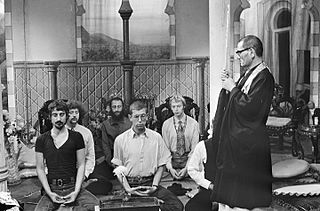A Quote by Mark Twain
The castle-building habit, the day-dreaming habit - how it grows! what a luxury it becomes; how we fly to its enchantments at every idle moment, how we revel in them, steep our souls in them, intoxicate ourselves with their beguiling fantasies - oh, yes, and how soon and how easily our dream-life and our material life become so intermingled and so fused together that we can't quite tell which is which, anymore.
Related Quotes
I don't know exactly what a prayer is. I do know how to pay attention, how to fall down into the grass, how to kneel down in the grass, how to be idle and blessed, how to stroll through the fields, which is what I have been doing all day. Tell me, what else should I have done? Doesn't everything die at last, and too soon? Tell me, what is it you plan to do with your one wild and precious life?
How do we define, how do we describe, how do we explain and/or understand ourselves? What sort of creatures do we take ourselves to be? What are we? Who are we? Why are we? How do we come to be what or who we are or take ourselves to be? How do we give an account of ourselves? How do we account for ourselves, our actions, interactions, transactions (praxis), our biologic processes? Our specific human existence?
Behavior influences consciousness. Right behavior means right consciousness. Our attitude here and now influences the entire environment: our words, actions, ways of holding and moving ourselves, they all influence what happens around us and inside us. The actions of every instant, every day, must be right...Every gesture is important. How we eat, how we put on our clothes, how we wash ourselves, how we go to the toilet, how we put our things away, how we act with other people, family, wife, work - how we are: totally, in every single gesture.
How often do we tell our own life story? How often do we adjust, embellish, make sly cuts? And the longer life goes on, the fewer are those around to challenge our account, to remind us that our life is not our life, merely the story we have told about our life. Told to others, but — mainly — to ourselves.
Most of our difficulties, our hopes, and our worries are empty fantasies. Nothing has ever existed except this moment. That's all there is. That's all we are. Yet most human beings spend 50 to 90 percent or more of their time in their imagination, living in fantasy. We think about what has happened to us, what might have happened, how we feel about it, how we should be different, how others should be different, how it's all a shame, and on and on; it's all fantasy, all imagination. Memory is imagination. Every memory that we stick to devastates our life.
How frequent, how constant ought we to be, like Christ Jesus our example, in doing good, especially to the souls of men and especially to the household of faith (yea, even to our enemies), when we remember that this is our seed time, of which every minute is precious, and that as our sowing is, so shall be our eternal harvest.
It is in the ordinary events of every day that we develop the proactive capacity to handle the extraordinary pressures of life. It's how we make and keep commitments, how we handle a traffic jam, how we respond to an irate customer or a disobedient child. It's how we view our problems and where we focus our energies. It's the language we use.
And how we become like our parents! How their scorned advice - based, we felt in our superiority, on prejudices and muddled folk wisdom - how their opinions are subsequently borne out by our own discoveries and sense of the world, one after one. And as this happens, we realise with increasing horror that proposition which we would never have entertained before: our mothers were right!






































